
Rutgers Prof. Paul Israel on Thomas Edison, Inventions, & American Patents
This week on “The Learning Curve," co-hosts Gerard Robinson and Cara Candal talk with Prof. Paul Israel, Director & General Editor of the Thomas A. Edison Papers at Rutgers University, and author of Edison: A Life of Invention, the definitive biography of America’s greatest inventor. Professor Israel describes Edison’s public and private life, as well as the impact of his world-changing inventions, such as the hot-filament light bulb, the phonograph, and the motion-picture camera.

Lipan Apache Tribe’s Pastor Robert Soto on Native American Heritage Month & Religious Liberty
This week on “The Learning Curve," co-hosts Gerard Robinson and Cara Candal talk with Pastor Robert Soto, a Lipan Apache religious leader and award-winning feather dancer who has successfully upheld his Native American cultural heritage and religious liberties in federal courts. As the country celebrates Native American Heritage Month, Pastor Soto shares his personal journey as a religious leader and describes the Lipan Apache Tribe.

Award-Winner Prof. David Reynolds on Abraham Lincoln & American Civil War Culture
This week on “The Learning Curve," co-hosts Gerard Robinson and Cara Candal talk with David Reynolds, a Distinguished Professor of English and History at the Graduate Center of the City University of New York. He is the author of Abe: Abraham Lincoln in His Times, selected as one of the Top Ten Books of the Year by The Wall Street Journal and The Washington Post. Professor Reynolds shares what teachers and students alike should know about the culture of Civil War America, primary education in that era, and the wide variety of influences on Lincoln’s thinking and leadership.

Prof. Raymond Arsenault on the 60th Anniversary of the Freedom Rides & Civil Rights
This week on “The Learning Curve," co-hosts Gerard Robinson and Cara Candal talk with Raymond Arsenault, the John Hope Franklin Professor of Southern History at the University of South Florida, and author of several acclaimed and prize-winning books on civil rights, including Freedom Riders: 1961 and the Struggle for Racial Justice. He shares how he became interested in researching, writing, and teaching about the Civil Rights Movement.

NYT Best Seller Dr. Kate Clifford Larson on Fannie Lou Hamer & the Mississippi Civil Rights Movement
This week on “The Learning Curve," co-hosts Cara Candal and Gerard Robinson talk with Dr. Kate Clifford Larson, a New York Times best-selling biographer of Harriet Tubman and Fannie Lou Hamer. Kate shares why she has written about these historical African-American figures, and how she thinks parents, teachers, and schools can draw on their lives to talk about race.

Yale’s Pulitzer-Winning Prof. David Blight on Frederick Douglass, Slavery, & Emancipation
This week on “The Learning Curve," Cara Candal and guest co-host Derrell Bradford talk with David Blight, Sterling Professor of American History and director of the Gilder Lehrman Center for the Study of Slavery, Resistance, and Abolition at Yale University. He is the author of the Pulitzer Prize-winning biography, Frederick Douglass: Prophet of Freedom.

Civil Rights Leader Bob Woodson on 1776 Unites & Race in America
This week on “The Learning Curve," co-hosts Cara Candal and Gerard Robinson talk with Robert Woodson, Sr., founder and president of the Woodson Center that supports neighborhood-based initiatives to revitalize low-income communities, as well as author and editor of the May 2021 book, "Red, White, and Black."

Mariam Memarsadeghi on Freeing Iran, Civic Ed, & Immigrant Portraits
This week on “The Learning Curve," co-host Cara Candal and guest co-host Derrell Bradford talk with Mariam Memarsadeghi, senior fellow at the Macdonald-Laurier Institute. Mariam shares remembrances from her early years spent in the Shah’s Iran, and emigration to the U.S. shortly after Ayatollah Khomeini’s revolution in 1979.
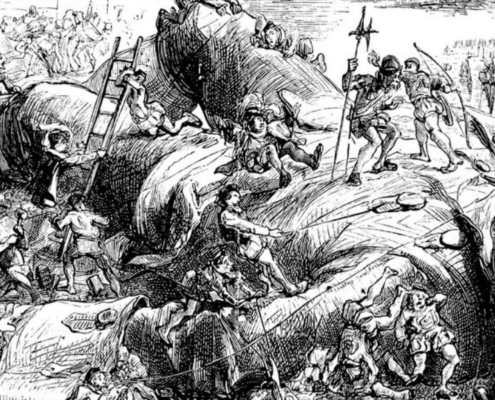
Elevating Liberal Democracy Above Fragmentation – 30 Resources for Citizens and Schools
0 Comments
/
In Pioneer’s ongoing series of blogs on curricular resources for parents, families, and teachers during COVID-19, this one focuses on: Elevating Liberal Democracy Above Fragmentation.
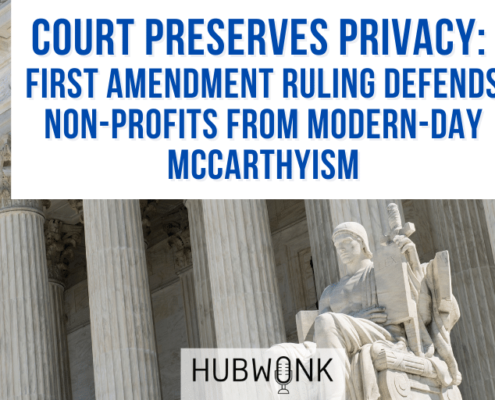
Court Preserves Privacy: First Amendment Ruling Defends Non-Profits From Modern-Day McCarthyism
Hubwonk Host Joe Selvaggi talks with CATO research fellow and constitutional scholar Trevor Burrus about the recent Supreme Court ruling, Americans For Prosperity Foundation v. Bonta, reaffirming the right to privacy by denying the state of California the right to compel non-profits to disclose their list of donors.
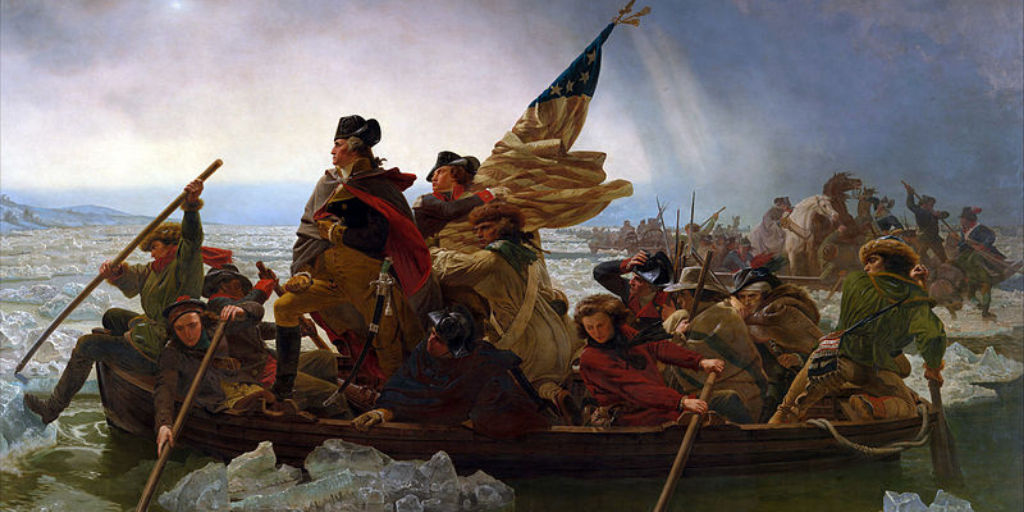
Celebrating American Independence! – 50 Resources on America’s Founding for Schoolchildren & Citizens
American schoolchildren need to know more about the basic history of and lessons from the American Revolution and War for Independence, including perhaps the greatest leader and hero the country has ever produced, George Washington. To do our small part to help the cause, we’re offering a variety of resources to help parents, teachers, schoolchildren, and citizens better celebrate the Fourth of July!

Pulitzer Prize-Winning Prof. David Hackett Fischer on Paul Revere, George Washington, & American Independence
This week on “The Learning Curve," co-hosts Gerard Robinson and Cara Candal talk with David Hackett Fischer, University Professor and Earl Warren Professor of History Emeritus at Brandeis University, and the author of numerous books, including Paul Revere's Ride and the Pulitzer Prize-winning Washington's Crossing. As America prepares to celebrate the Fourth of July, they review key figures who helped secure independence from Great Britain, including Paul Revere, immortalized in Longfellow’s classic poem, and Founding Father George Washington, known among his contemporaries as the “indispensable man” of the revolutionary cause.
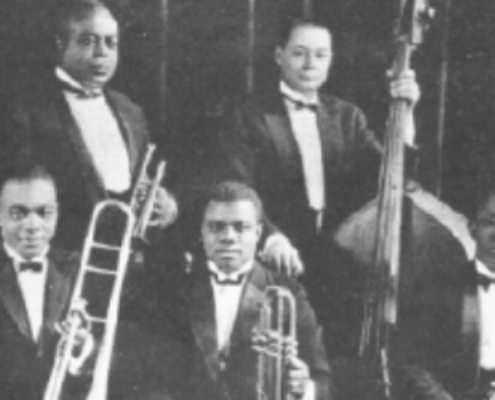
“The Jazz Age” – 1920s America – 50 Resources for High School Students
American schoolchildren need to know more about the basics of the history of and lessons from the 1920s, which did as much as any decade to shape our modern country in the last century. To remedy this, we’re offering a variety of resources to help parents, teachers, and high schoolers:

New York Times Best Seller Paul Reid on Winston Churchill, WWII, & the Cold War
This week on “The Learning Curve," Cara and guest co-host Kerry McDonald talk with Paul Reid, co-author, with William Manchester, of the New York Times best-selling biography of Winston Churchill, The Last Lion: Defender of the Realm, 1940-1965. Reid shares how he was enlisted to complete William Manchester’s biographical trilogy on the greatest political figure of the 20th century, which became a best-seller.
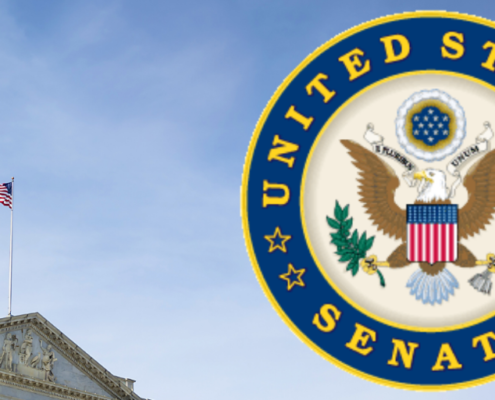
“Ballast for the Ship of State” – The U.S. Senate – 40 Resources for High School Students
The U.S. Senate’s vital, though sometimes dormant, authority in the face of the Imperial Presidency means few Americans and schoolchildren truly understand its constitutional role and inner workings. To remedy this, we’re offering a variety of resources to help parents, teachers, and high schoolers.

BU’s Dr. Farouk El-Baz on NASA’s Moon Landing, Remote Sensing, & STEM
This week on “The Learning Curve," Gerard and Cara talk with Dr. Farouk El-Baz, retired research professor and director of the Center for Remote Sensing at Boston University. They discuss his remarkable, varied, and pioneering career in the sciences, surveying both the heavens and the Earth, and key teachers and scientists who have influenced him. Dr. El-Baz shares what it was like serving as supervisor of Lunar Science Planning for NASA's Apollo program, and working on the world-changing project of putting a human on the Moon.

Law Prof. Melvin Urofsky on Justice Louis Brandeis, the SCOTUS, & Dissenting Opinions
This week on “The Learning Curve," Gerard and Cara talk with Melvin Urofsky, Professor of Law & Public Policy and Professor Emeritus of History at Virginia Commonwealth University, and the author of several books, including Louis D. Brandeis: A Life and Dissent and the Supreme Court. Professor Urofsky shares insights on Justice Brandeis’s jurisprudence, and why he consistently ranks among the three most influential Supreme Court justices in American history.

Stanford’s National Humanities Medal Winner Prof. Arnold Rampersad on Langston Hughes & Ralph Ellison
This week on “The Learning Curve," Gerard and Cara talk with Professor Arnold Rampersad, the Sara Hart Kimball Professor Emeritus in Humanities at Stanford University and recipient of the National Humanities Medal for his books including The Life of Langston Hughes and Ralph Ellison: A Biography.

Dartmouth’s Prof. Susannah Heschel Discusses Rabbi Abraham Joshua Heschel & the Civil Rights Movement
This week on “The Learning Curve," Gerard and Cara talk with Dr. Susannah Heschel, the Eli M. Black Distinguished Professor of Jewish Studies at Dartmouth College, and the daughter of noted 20th-century Jewish theologian and Civil Rights-era leader, Rabbi Abraham Joshua Heschel. They discuss what teachers and students today should know about Rabbi Heschel’s life and legacy.

Best-Selling, Netflix Author Loung Ung On Surviving Pol Pot’s Killing Fields
This week on “The Learning Curve," Gerard and Cara talk with Loung Ung, a human-rights activist; the author of the bestselling books First They Killed My Father: A Daughter of Cambodia Remembers, Lucky Child, and Lulu in the Sky; and a co-screenwriter of the 2017 Netflix Original Movie, First They Killed My Father. Ms. Ung shares her experiences living through genocide under Pol Pot and the Khmer Rouge from 1975 to 1979, which resulted in the deaths of nearly a quarter of Cambodia's population.

WSJ Drama Editor Terry Teachout on Jazz Greats Louis Armstrong & Duke Ellington
This week on “The Learning Curve," Gerard and guest co-host Kerry McDonald continue our celebration of Black achievements with Terry Teachout, drama critic at The Wall Street Journal, and author of such books as Pops: A Life of Louis Armstrong and Duke: A Life of Duke Ellington.

Never Forgetting – Holocaust Remembrance Day – 25 Resources for K-12 Students
In Pioneer’s ongoing series of blogs here, on curricular resources for parents, families, and teachers during COVID-19, this one focuses on: Memorializing International Holocaust Remembrance Day on January 27th and learning about the tragedy of the Holocaust during WWII.

Pulitzer Winner Taylor Branch on MLK, Civil Rights History, & Race in America
This week on “The Learning Curve," Cara and Gerard are joined by Taylor Branch, Pulitzer Prize-winning author of a landmark trilogy on the Civil Rights era, America in the King Years. They discuss the life and legacy of the Rev. Dr. Martin Luther King, whose birthday the nation observed on Monday. They review Dr. King’s powerful, moving oratory, drawing on spiritual and civic ideals to promote nonviolent protest against racial injustice, and how, as head of the Southern Christian Leadership Conference, he shared leadership of the movement with organizations such as the Student Nonviolent Coordinating Committee.

Ignat Solzhenitsyn on His Father’s Nobel Prize-Winning Fight with Communism
This week on “The Learning Curve," Cara and Gerard talk with Ignat Solzhenitsyn, a pianist, conductor laureate of the Chamber Orchestra of Philadelphia, principal guest conductor of the Moscow Symphony Orchestra, and son of the Nobel Prize-winning Russian writer Aleksandr Solzhenitsyn. They discuss his father’s legacy, his courageous work to debunk the Soviet Union’s utopian myths, and key lessons American educators and students should draw from his life, writings, and battle with Soviet communism.

Oxford & UCLA Pulitzer Winner Prof. Daniel Walker Howe on Horace Mann, Common Schools, & Educating for Democracy
This week on “The Learning Curve,” Cara and Gerard are joined by Daniel Walker Howe, Rhodes Professor of American History Emeritus at Oxford University in England and Professor of History Emeritus at UCLA. Drawing from his Pulitzer Prize-winning book, What Hath God Wrought: The Transformation of America, 1815-1848, he provides background information on Horace Mann, the first secretary of the Massachusetts State Board of Education, founder of the common school movement in public education, and a prominent abolitionist in Congress.

The 400th Anniversary of the Mayflower – 15 Resources for K-12 Students
In Pioneer’s ongoing series of blogs on curricular resources for parents, families, and teachers during COVID-19, this one focuses on: Celebrating the 400th Anniversary of the Mayflower’s voyage.

UConn’s Prof. Wayne Franklin on James Fenimore Cooper, The Last of the Mohicans, & American Democracy
This week on “The Learning Curve,” Cara and Gerard are joined by Wayne Franklin, professor of English at the University of Connecticut and definitive biographer of the American literary figure James Fenimore Cooper. As we celebrate Native American Heritage Month, Prof. Franklin reviews Cooper's background and major works, especially the "Leatherstocking Tales," including The Last of the Mohicans, which are distinguished for their enlightened and sympathetic portrayal of the disappearing tribes.

Nationally Recognized Author Tara Ross on the Importance of the Electoral College
This week on “The Learning Curve,” Cara and Gerard are joined by Tara Ross, the nationally recognized author of Why We Need the Electoral College. On the eve of the 2020 election, they discuss the critical and controversial role of the Electoral College in determining which candidate will become the next President of the United States.

Pulitzer-Winning Author Stacy Schiff on the Salem Witch Trials
In our special Halloween edition of “The Learning Curve,” Cara and Gerard are joined by Pulitzer-Prize winner Stacy Schiff, whose most recent book is The Witches: Salem, 1692. They discuss why, in Schiff’s view, the Salem witch trials are the “the best known, least understood chapter” of American history, and why the trials, false charges, and finger pointing, remain relevant today in our Internet culture.

The Houses of Great American Writers – 25 Resources for K-12 Education
According to the Brookings Institution research, teaching great fiction is declining across America’s K-12 education system, so we’re offering resources to help parents, teachers, and schoolchildren to better appreciate great American writers and the places where they wrote.
